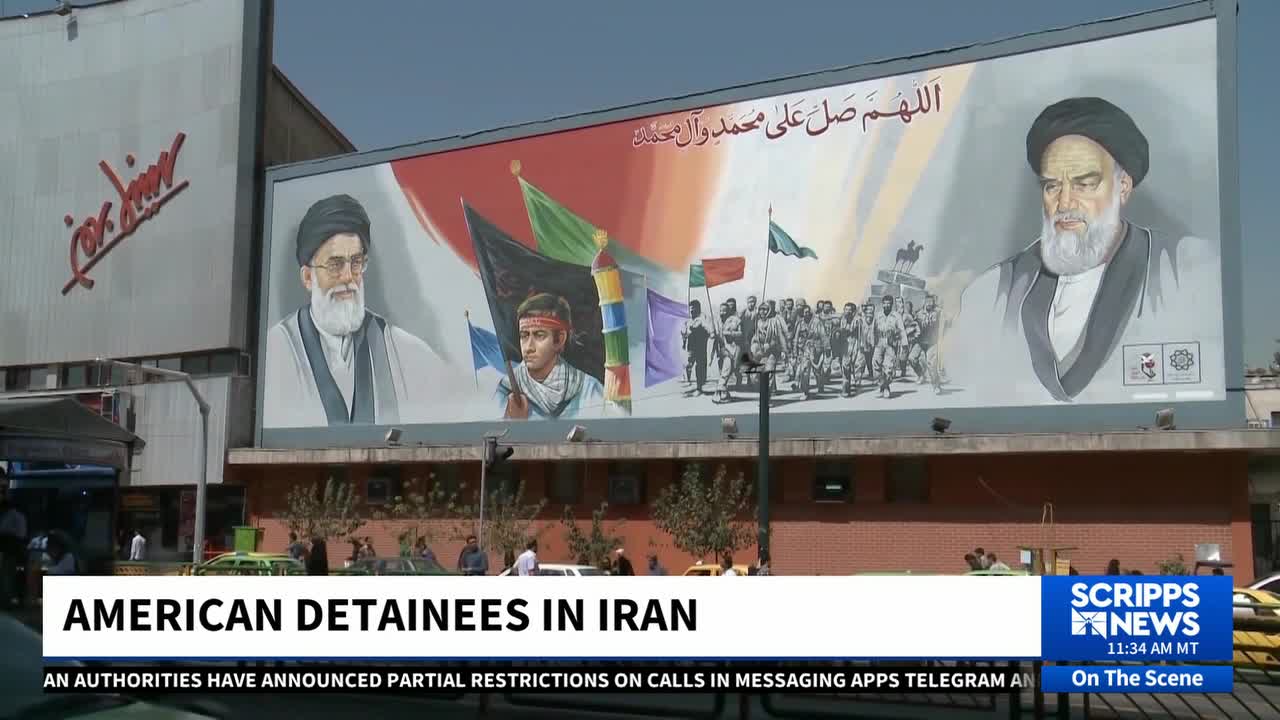When the U.S. military struck Iran's nuclear facilities in June, it opened a new salvo in the decades-long strained relationship between the two countries, with Iran detaining more Americans.
"At least two of them that we know of being taken after the strikes in June. We do think that timing kind of lends itself to being for other reasons than what probably is being stated by the court system in Iran," said Liz Richards, director of hostage advocacy and research at the Foley Foundation.
The foundation is a nonprofit that tracks the unjust detention of Americans overseas, including in Iran.
"So, currently our count is at least five U.S. nationals," Richards said. "We're concerned there could be more, though."
She said those detentions are a form of what is known as "hostage diplomacy."
"Hostage diplomacy is when a foreign nation takes a citizen of another sovereign nation and tries to leverage that individual for concessions," Richards said.
A State Department official tells Scripps News they are closely tracking the cases of Americans detained in Iran, but added that for privacy, safety, and operational reasons, they don't share information about detainees.
However, we do know the name of at least one of those who is detained - Reza Valizadeh, an Iranian-American who was a former correspondent with Radio Farda, a U.S.-funded outlet. The Iranian government accuses him of "collaborating with a hostile government." He went on a hunger strike in June.
RELATED STORY | How close is Iran to a nuclear weapon? Experts and officials disagree
Iran's detention of American citizens is not new and first began during the country's 1979 revolution, which saw multiple Americans taken hostage.
The crisis played out nightly on television screens across the world. It lasted 444 days, with dozens upon dozens of Americans held hostage at the U.S. Embassy in Tehran.
According to the Foley Foundation, since 1979, Iran has detained 94 Americans: 65 of those took place during the Iran Hostage Crisis, with 25 other Americans detained after 2003.
Several of the Americans currently held in Iran appear to be either dual U.S.-Iranian citizens or U.S. citizens of Iranian heritage.
In a briefing in July, the U.S. State Department warned against any travel to Iran.
"The Iranian regime does not recognize dual nationality, and routinely denies consular services to detained U.S. citizens. And while the bombing has stopped, that does not mean that it is safe to travel to Iran. It is not," said U.S. State Department spokesperson Tammy Bruce. "We cannot stress enough – as we continue to do, as I have multiple times from this podium – do not travel to Iran."
It is a sentiment echoed by the Foley Foundation.
RELATED STORY | Trump says US decision on Iran-Israel conflict coming within 2 weeks
"If they're thinking about traveling over there, don't go. And it does pain me to say that - I believe that we should have the power to travel freely in this world, but Iran is one of those countries that will hold you, and it's not because you've done anything wrong," Richards said. "And to prevent yourself from being put in that situation, please don't go to countries like Iran."
What makes Iran especially difficult to deal with in these cases is that the United States does not have formal diplomatic relations with Iran.
Instead, the U.S. relies on Switzerland to act as a go-between and check in on these cases of detained Americans. However, that provides very limited consular services to those detained, which adds another layer to an already complex situation.





